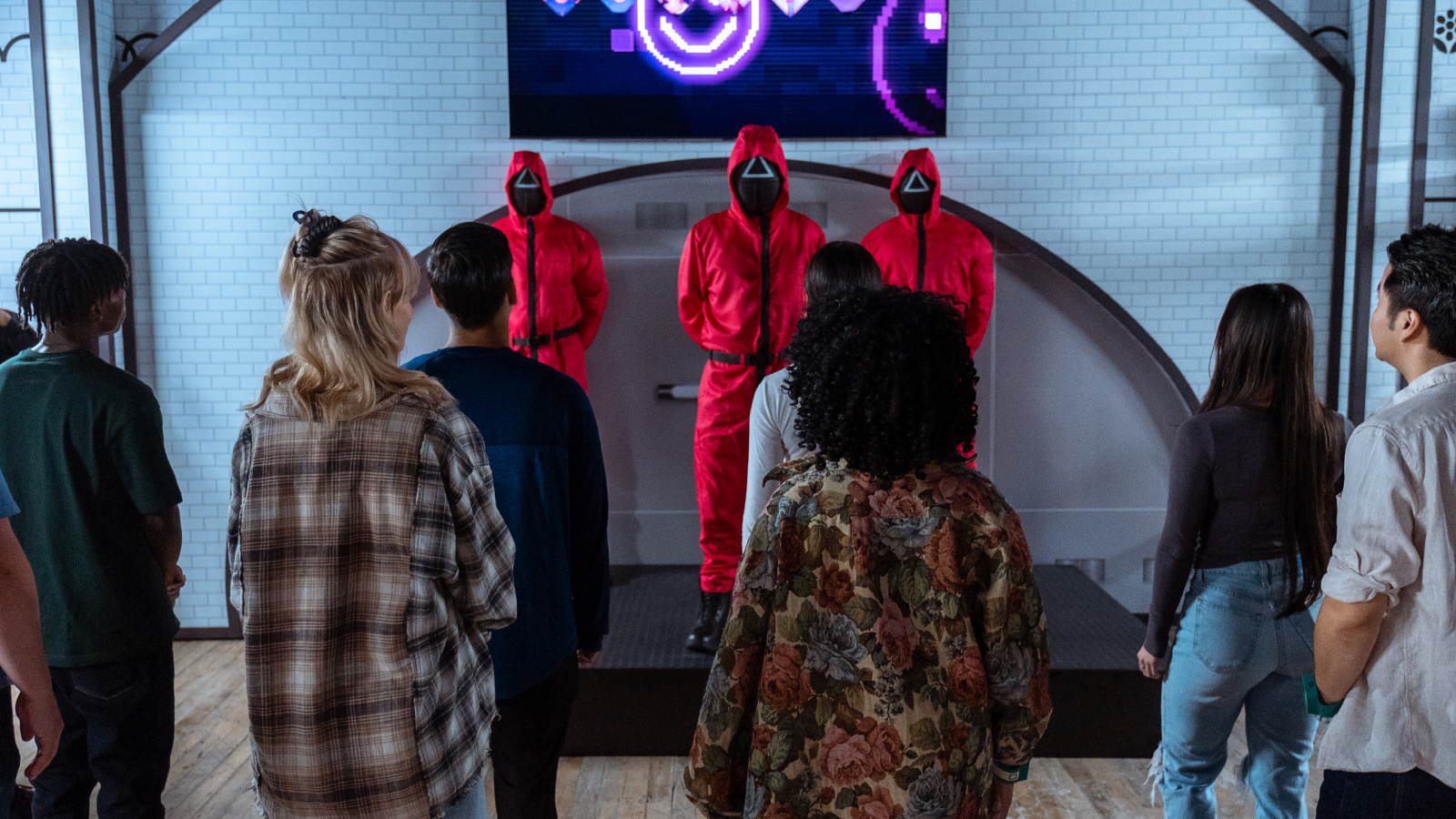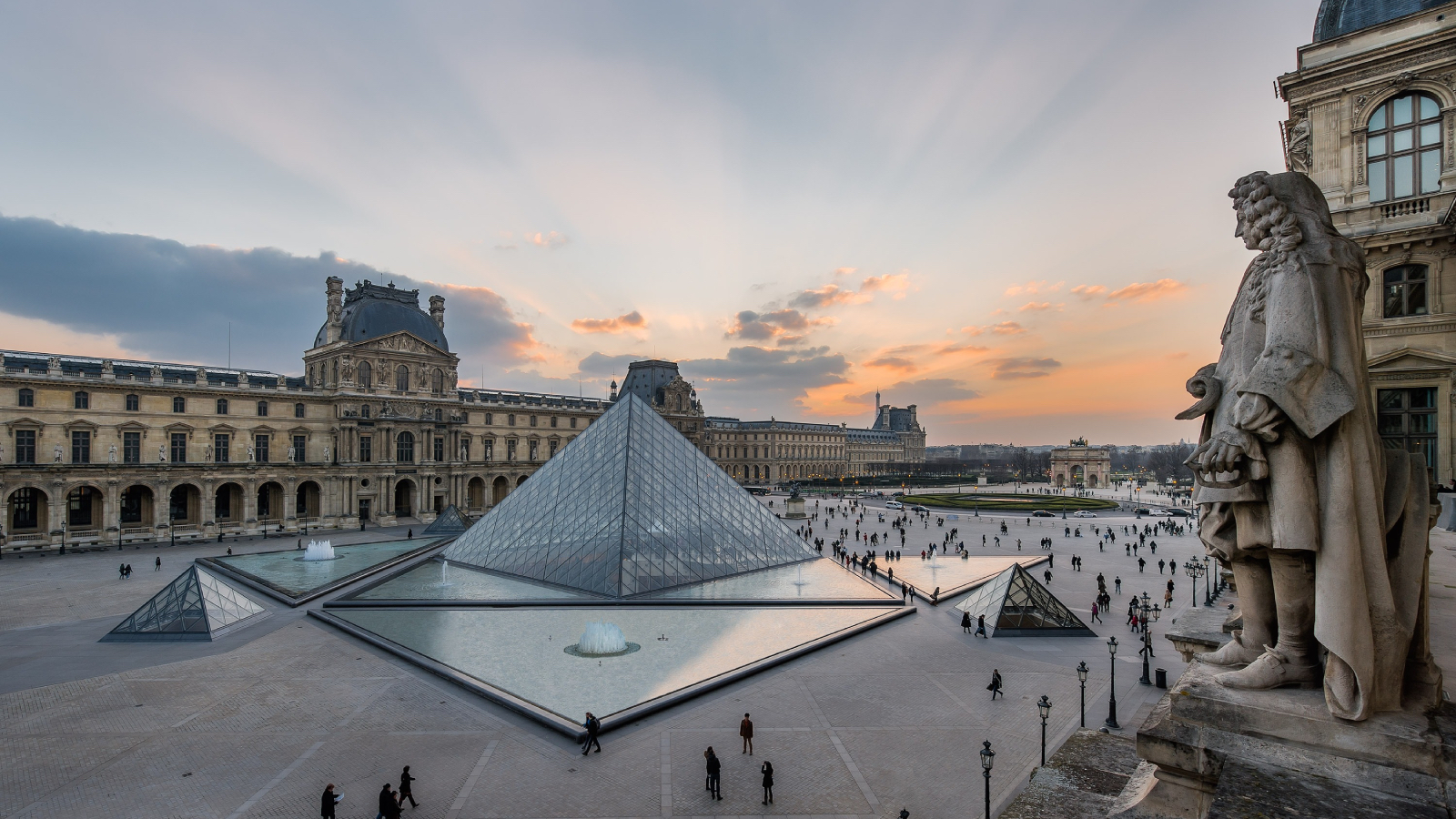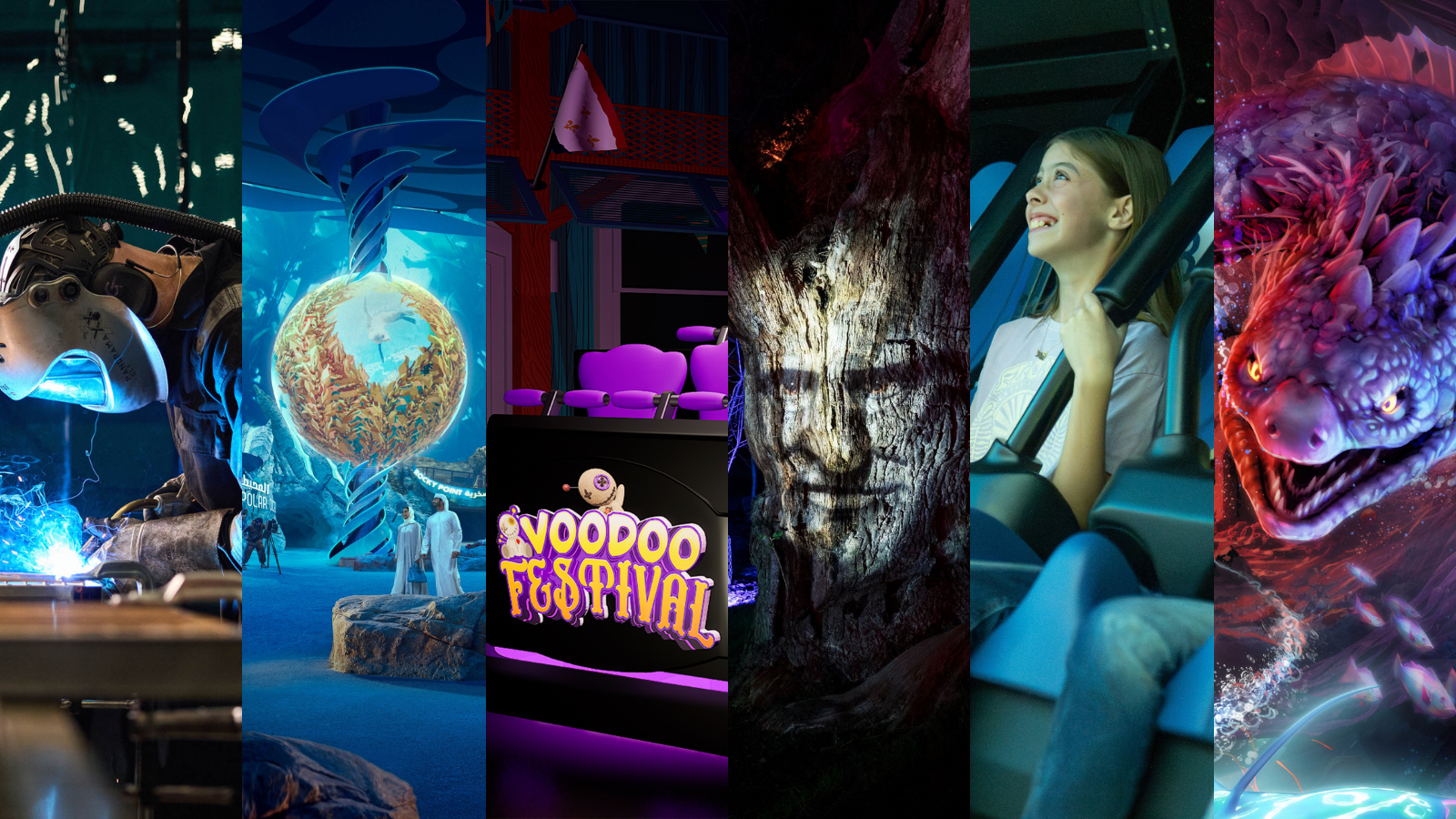|
Holovis has delivered a full technical overhaul of Squid Game: The Experience in New York, introducing rebuilt game systems, upgraded motion tracking, and a brand-new finale to bring Netflix’s hit series to life

Tom Anstey | Planet Attractions | 01 Jul 2025

 The experience allows fans of the show to take part in Squid Games Credit: Holovis The experience allows fans of the show to take part in Squid Games Credit: Holovis
Immersive experience design specialist Holovis has completed a major technical overhaul of Squid Game: The Experience in New York, delivering a fully rebuilt and gamified attraction based on the hit Netflix series.
The production, which invites guests to step into a high-stakes version of the show's infamous competitions - without the deadly consequences - first premiered in Los Angeles.
For its East Coast debut, Holovis led a comprehensive refresh, redesigning the software architecture, enhancing motion-tracking mechanics, and introducing a dramatic new finale to elevate both the gameplay and operational performance.
Central to the New York build was a complete backend redevelopment, integrating updated assets provided by Netflix and deploying a new Unity-based frontend to boost responsiveness and graphical fidelity. Holovis also upgraded host control systems and redesigned the show control architecture to streamline operations, allowing staff to focus more on the guest experience than the underlying tech. Upgraded host tablets, a rebuilt game engine, and revised media synchronisation now ensure smoother performance across the venue.
According to Holovis, a major emphasis was placed on seamless interactivity and durability. The Red Light, Green Light challenge was enhanced with new industrial-grade hardware and custom motion detection technology using Bluetooth beacons embedded in guest wristbands. These beacons, powered by accelerometers, offer high-precision movement tracking without the need for bulky equipment or regular charging - a solution designed to meet high throughput demands with minimal friction.
The experience supports up to 144 players simultaneously, with six individual games running at once. Each guest is assigned a unique player number, just like in the series, and game flow adjusts dynamically based on group size and accessibility needs - ensuring high capacity without sacrificing immersion. The newly implemented network infrastructure allows hosts to operate the experience via wireless tablets from anywhere in the space, while a separate hard-wired control system gives technical directors behind-the-scenes control and rapid intervention options if needed.
The New York build also introduced a brand-new finale game - a Jack-in-the-Box showdown designed to end the experience with a high-impact moment of tension and surprise. Lighting and audio were tightly integrated with the game mechanics to reinforce suspense, while Holovis’ lighting team added atmosphere throughout the attraction.
Holovis worked with a multidisciplinary team of engineers and designers to bring the experience to life, blending traditional show control with real-time game development. Products from partners included Alcorn McBride, Q-SYS, ETC Lighting, Beckhoff Automation, Lightware, and Beetronics.
Following the attraction’s October launch, Holovis partnered with Netflix to monitor performance and guest interaction, refining the system based on real-time analytics. The approach, says Holovis, allowed the team to fine-tune reliability, eliminate technical bottlenecks, and respond quickly to guest behaviours. A second wave of enhancements is already scheduled for later this year.
Suppliers
|
|






Supplier Showcase 2025: The biggest attractions projects landing worldwide this year
|